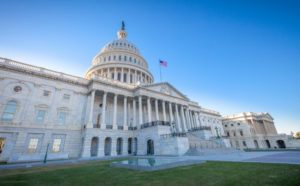
The House will consider a series of cyber-related amendments this week to its version of the next defense policy bill, which includes directives for the Pentagon to detail long-term plans for artificial intelligence (AI) and increasing security cooperation with several international partners. Lawmakers on the House Rules Committee on Tuesday approved the FY ‘20 National Defense Authorization Act (NDAA) cyber amendments for consideration on the floor, with the majority of the provisions likely to pass as part of several "en…

 By
By 











